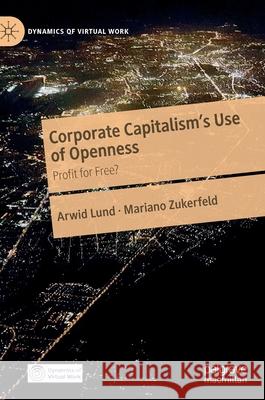Corporate Capitalism's Use of Openness: Profit for Free? » książka
topmenu
Corporate Capitalism's Use of Openness: Profit for Free?
ISBN-13: 9783030282189 / Angielski / Twarda / 2020 / 338 str.
Corporate Capitalism's Use of Openness: Profit for Free?
ISBN-13: 9783030282189 / Angielski / Twarda / 2020 / 338 str.
cena 483,04
(netto: 460,04 VAT: 5%)
Najniższa cena z 30 dni: 462,63
(netto: 460,04 VAT: 5%)
Najniższa cena z 30 dni: 462,63
Termin realizacji zamówienia:
ok. 22 dni roboczych.
ok. 22 dni roboczych.
Darmowa dostawa!
Kategorie:
Kategorie BISAC:
Wydawca:
Palgrave MacMillan
Seria wydawnicza:
Język:
Angielski
ISBN-13:
9783030282189
Rok wydania:
2020
Wydanie:
2020
Numer serii:
000793599
Ilość stron:
338
Waga:
0.72 kg
Wymiary:
21.01 x 14.81 x 2.87
Oprawa:
Twarda
Wolumenów:
01
Dodatkowe informacje:
Wydanie ilustrowane











